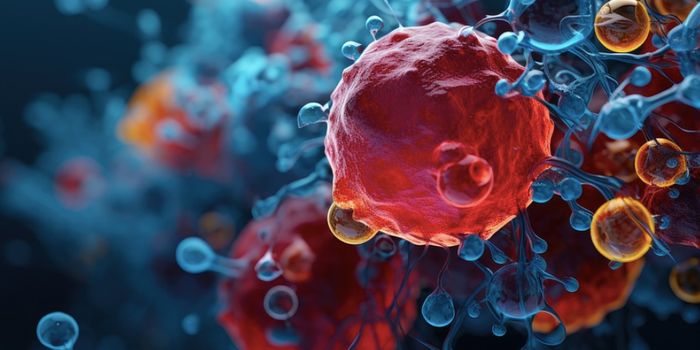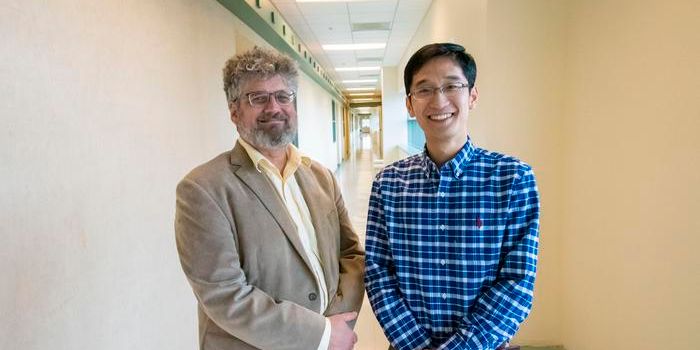Learning how Sugar and Some Cancers are Connected
Researchers that set out to study metabolism in cancer cells found that some kinds of cancer love sugar. They had aimed to learn more about how the metabolic profiles of two cancers, adenocarcinoma (ADC) and squamous cell carcinoma (SqCC), differed and made this intriguing finding. Their work has been reported in Nature Communications and is outlined in the following video.
"It has been suspected that many cancer cells are heavily dependent on sugar as their energy supply, but it turns out that one specific type -- squamous cell carcinoma -- is remarkably more dependent," said the senior author of the work, Dr. Jung-whan "Jay" Kim, an Assistant Professor of Biological Sciences. Roughly a quarter of all lung cancers are SqCC, a disease which is difficult to treat with targeted therapies, Kim noted.
The researchers utilized a database, The Cancer Genome Atlas, which holds data on 33 types of cancer obtained from over 11,000 patients. Glucose, a sugar, gets moved into cells by a transporter. The database of cancer patients indicated the levels of glucose transporter are much higher in lung SqCC compared with lung ADC. The glucose transporter 1 is named GLUT1; it moves glucose into cells, where it is a critical source of energy for cell metabolism and function. All cells need to use sugars as a source of energy, but these SqCC cells have a special appetite for it.
"Prior to this study, it was thought that the metabolic signatures of these two types of lung cancers would be similar, but we realized that they are very different," Kim explained. "These findings lend credence to the idea that cancer is not just one disease, but many diseases that have very different characteristics." After observing that high GLUT1 converges with SqCC's appetite for sugar, the researchers investigated further using human lung tissue, animal disease models and isolated lung cancer cells.
"We looked at this from several different experimental angles, and consistently, GLUT1 was highly active in the squamous subtype of cancer. Adenocarcinoma is much less dependent on sugar," Kim said. "Our study is the first to show systematically that the metabolism of these two subtypes are indeed distinct and unique."
The team found additional evidence as well. "When we gave GLUT1 inhibitors to mice with lung cancer, the squamous cancer diminished, but not the adenocarcinoma," Kim said. "There was not a complete eradication, but tumor growth slowed. Taken in total, our findings indicate that GLUT1 could be a potential target for new lines of drug therapy, especially for the squamous subtype of cancer."
The investigators learned that elevated GLUT1 is also observed in four other types of squamous cell cancer: cervical, esophageal and head and neck.
"These are very different organs and tissues in the body, but somehow squamous cell cancers have a very similar commonality in terms of glucose uptake," Kim explained. "This type of cancer clearly consumes a lot of sugar. One of our next steps is to look at why this is the case." Next, the scientists plan to study how a sugar-restricted diet affects lung cancer growth in an animal model.
With the U.S. Department of Agriculture estimating that the average American takes in 75 pounds of sweeteners a year, it will be important to learn more about the relationship between cancer and sugar.
"As a culture, we are very addicted to sugar," Kim said. "Excessive sugar consumption is not only a problem that can lead to complications like diabetes, but also, based on our studies and others, the evidence is mounting that some cancers are also highly dependent on sugar. We'd like to know from a scientific standpoint whether we might be able to affect cancer progression with dietary changes."
Sources; AAAS/Eurekalert! via UT Dallas, Nature Communications

-
MAY 07, 2024Is It Anti-RNP or Anti-Sm/RNP?
- See More
-
APR 30, 2024Immuno-Oncology Virtual Event Series 2024
-
MAY 07, 20243rd International Biosecurity Virtual Symposium
-
MAY 23, 2024For the Love of Digital PCR 2024
- See More


















































